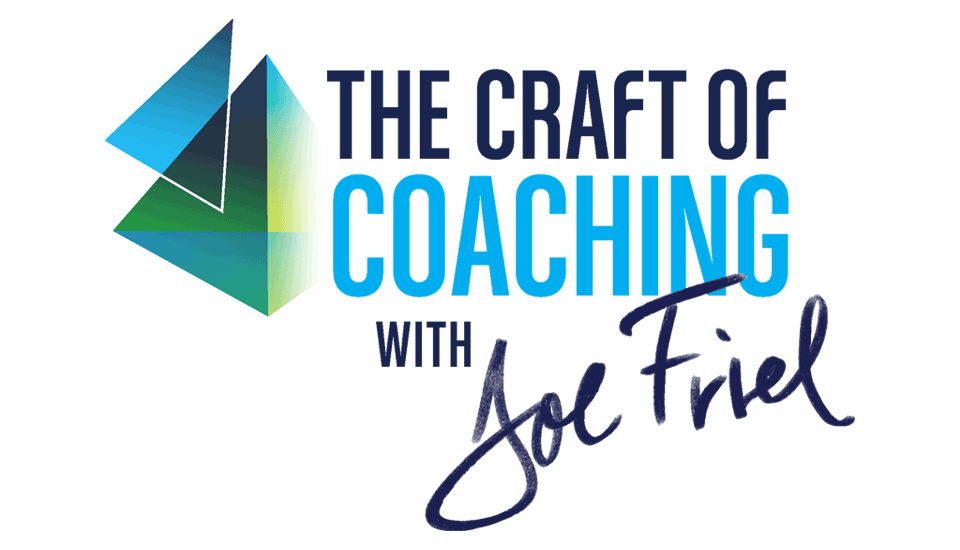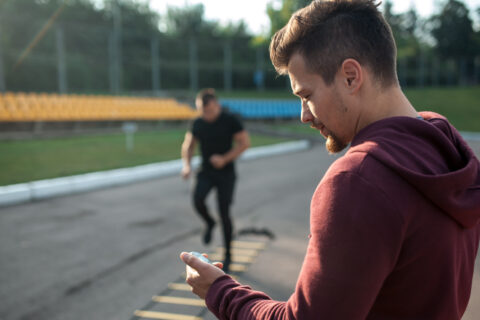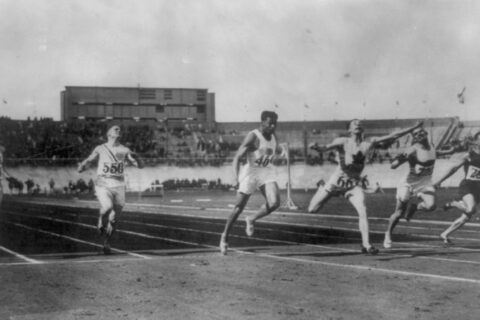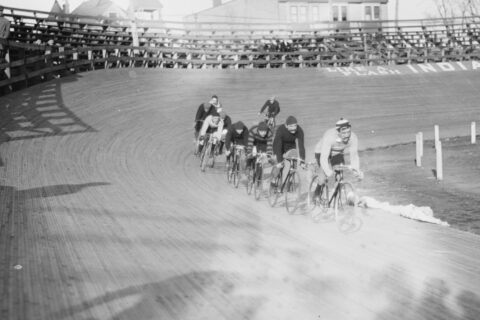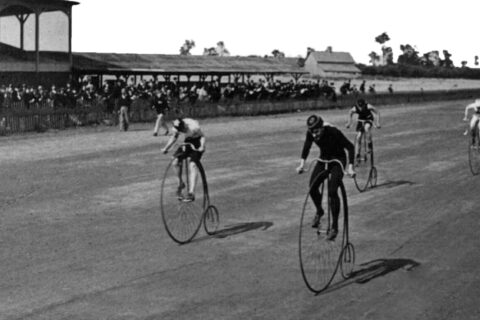There are some tough conversations early in the athlete-coach relationship as you identify where the athlete stands in relation to their goal. Getting to know your athletes—and what makes them unique—is key to building the right training plan for them. But when you first start working with a new client, how do you get to know them?
Coach Dave Schell likes to kickstart the process with a thorough intake questionnaire. This questionnaire covers a wide range of topics that help give him an insight into his new charge. He quizzes them on topics such as their training background (to establish their training “age”), their goals, their mindset, their sources of motivation, and their nutrition habits. Once complete, it gives him a much fuller picture of the athlete, their background and their lifestyle so that he can create a fully customized plan that sets them both up for success.
Video Transcript
Joe Friel 00:05
How long have you been coaching?
Dave Schell 00:11
I’ve been coaching since around 2010, so coming on 12 years now.
Joe Friel 00:16
So you’ve got some experience here, which is good.
Dave Schell 00:19
I don’t feel like I do. I feel like I’m just learning, that I know nothing.
Joe Friel 00:24
You do, and what sports are you coaching?
Dave Schell 00:27
I coach primarily cyclists, and really focus on off-road and more of the long stuff. So, like, mountain bike marathon, ultra endurance things, along those lines.
Joe Friel 00:37
Gravel also, I assume?
Dave Schell 00:38
Yeah, exactly.
How Do You Engage the Athlete?
Joe Friel 00:40
When you’re coaching somebody, how do they become involved in the process of all the stuff you’re going to do, all the planning you’re going to do? How do you bring them in so they have some ownership of what’s going on?
Dave Schell 00:53
I think it really depends on the athlete, but with athletes I try to encourage them to be part of that process so that we can get that buy-in. One of the initial things I do with any athlete is I have them fill out an athlete questionnaire.
It asks about available time, what their other responsibilities are, what their goals are within the next six months, what their goals are over the next three years. Why, what is their motivation? Did they want to be competitive? Are they competitive? Do they want to be on the podium? Is this more of a fitness thing, and they just want to do it for longevity? With those things, it gives me an idea of kind of their personality and what makes them tick.
But then it’s something we can refer back to, and especially with the goals, it becomes my kind of North Star where every, say, two to three months, it’s something that we can have a call or have a discussion and say, “this was your goal, when we first started working together, is this still the goal? Does it make sense and has it changed?” A lot of times, you know, people’s eyes are bigger than their stomachs, and they have big goals to start. Then once they realize what it’s going to take to reach it, we might have to shift that a little bit. So, just having that conversation really helps.
Joe Friel 02:12
When you’re having this conversation, I assume you’re doing a lot more, learning a lot more about them than simply how often they ride their bike or that sort of thing. You’ll probably find out an awful lot about their lifestyles also, and maybe even their mental state, you’re getting some look at how they see the world mentally, or at least how they see their sport mentally. Those things, I assume, are all a part of this process that goes into coming up with a training plan for your athletes, you kind of get to know the whole athlete.
Dave Schell 02:41
Absolutely.
Joe Friel 02:43
Really what you’re finding out is how this person is unique, because all athletes are not the same, obviously. So what sort of things are you looking for, that might help you come up with a training plan for the athlete? Are their things you are looking for that may be along the lines of training-related stuff, but also maybe lifestyle-related stuff? What are some of the things that are important to you?
Looking for an Athlete’s Deficiencies
Dave Schell 03:09
Yeah. So one of the things I’ve found, that tends, it’s tended to be true with most athletes, is, as far as from a training perspective, I find that a lot of times they’re deficient in one of three areas. It’s either how much they’ve been riding, how intensely they’ve been riding, or how frequently they’ve been riding. “Frequent” and “much” sound similar, but they’re not, in that I’m looking at just total volume, how frequently, and then what’s that intensity look like?
Dave Schell 03:39
What’s kind of happened that I’ve seen over the last five years is that as people and smart trainers have gotten more and more popular, people ride inside a lot, but almost every ride tends to be pretty intense. So there’s a lot of people that come to me that want to, maybe, think they want to be an endurance athlete and do an eight- to 10-hour event, but they only want to ride their bike three times a week, and they want it to be really hard each time. That’s something that comes out and like I said, it tends to be pretty common with them, a lot of the athletes I bring on. So that’s one thing, it’s just looking at how much they’ve been training and what that intensity looks like, finding out how long they’ve been training, so their training age. So let’s say they maybe they just started cycling this year, but they were a runner in college or a runner in high school or something. Their training age is going to be higher than somebody who just started riding, so that’s going to play into decisions. Also just finding out their motivations. I think with a lot of athletes, it’s 90% mental and so even if they have all the physiology to help them achieve something, if they can’t go to the hurt box or don’t have the mental toughness, they’re never going to realize that potential. Just trying to get a feel for what their current mental status is on training, and if that’s kind of low-hanging fruit that we need to address.
Joe Friel 05:13
Are there some questions you can ask them to help you get to that? Because that seems to be like a difficult thing to determine when you’re having this initial conversation with somebody—how they go about training when you’re asking them to do things that are difficult, or when they come to the first race, this is this mental attitude that they’ve got to have. Are there any things you can look for in an athlete to help you come up with a decision?
Finding the Right Training for Your Athlete’s Mental Status
Dave Schell 05:37
Yeah, some of my questions, and probably the two biggest ones that helped me with that is one I ask, why do you train and race? It’s a scale of one to five. On one, I’m just here for the camaraderie and the fun. The other is, I want to crush souls. Everybody falls somewhere on that spectrum. The other one that I ask is, what is your favorite workout? What’s your least favorite workout? That will typically give me some insight into what they kind of, what they enjoy, and my kind of de facto response is, whatever their least favorite is, they probably need to do more.
Joe Friel 06:20
From all this information you’ve gathered about the athlete, you go about creating a training plan, I assume? How far into the future do you project this training plan when you’re working with the athlete trying to come up with this initial plan?
Training Plan Longevity
Dave Schell 06:32
Yeah, so I’ll come up with a very basic kind of overarching plan, and I use a Google spreadsheet or an Excel spreadsheet. I just kind of look at, where does their key event fit in? So it might be one to three events over the course of the year, and we plot those out. Then I asked them are there any days you’re gonna be traveling, any vacations, things like that? We plot that on there. Once we have all that, then I’ll kind of back-calculate, and look at periods and say this is what we want to work on for this period, this is what we want to work on for this period. Once we do all that, it rarely stays the same, but at least it’s something I can refer back to and say this is what we wanted to do at the beginning of the year. What can we salvage?
Joe Friel 07:20
So how often are those changes taking place? Or is this something that happens on a monthly basis? Or bi-monthly basis, or daily? How often do you have to make changes to an athlete’s plans?
Dave Schell 07:32
I would say weekly, pretty typically weekly. So I tend to plan about two weeks out at a time, I’ve just found over time that two weeks seems to be a sweet spot where one week is too short of a time and doesn’t give them enough foresight to plan their life. Four weeks is almost too far, because something almost always happens within that four weeks. So two weeks, it gives them enough foresight so they can plan and it allows me to be more reactive, so that we can change as we go.
Joe Friel 08:05
Have you ever had a situation where you’ve had two athletes who have basically the same goal, but you had to create training plans that were uniquely different for them?
Every Athlete is Different
Dave Schell 08:17
Yeah, I mean, a lot of athletes, at least in my experience, or the athletes that I work with as they’re doing the longer events, it’s typically about beating a cut off or setting a PR or something like that. So typically at the beginning of the year or early season, we’re looking at what are the event demands? Then where’s the athlete currently at? So, turn the two coin limiters, we’re trying to identify limiters. So those limiters are things we’re going to work on over the course of the year, and they might be very different depending on the athlete. For somebody who’s very new, and has just started riding, their limiter is just more time on the bike and getting used to being on your bike for six hours, whereas somebody who’s been riding for a long time, it’s going to be more about maximizing their potential within the context of what they’ve been doing.
Joe Friel 09:13
So you’ve had those two athletes? You’ve had the athlete who needed more bike time, more saddle time, but you’ve also had the athlete who needed more race-type training, I assume?
Dave Schell 09:23
Exactly. Kind of looking at their power curve and looking at, based on this event, and based on where they’re currently at, where do we have the most room to gain? I guess, for a little context, in my experience ,with more experienced athletes, it’s harder to get those gains, right, and so we have to be way more focused on what we’re trying to achieve, whereas with a newer athlete, a lot of times it’s just about more time on the bike.
Joe Friel 09:49
More time on the bike, it often comes down to that.
Dave Schell 09:52
Yeah, exactly.
Joe Friel 09:53
Well, Dave, thank you very much. We went through a lot of questions earlier today, and I appreciate you coming by to talk with me.
Dave Schell 09:59
Absolutely. Thanks for having me!
